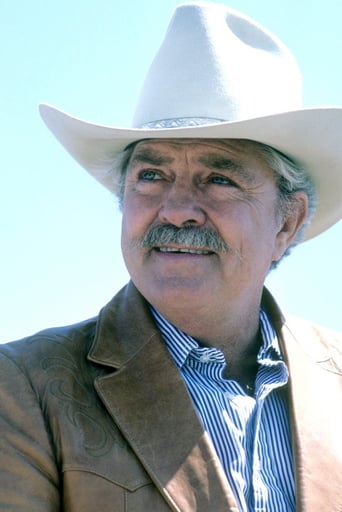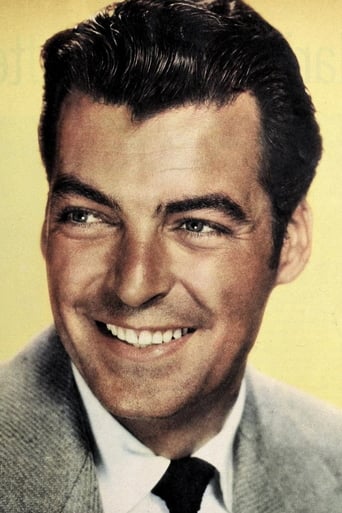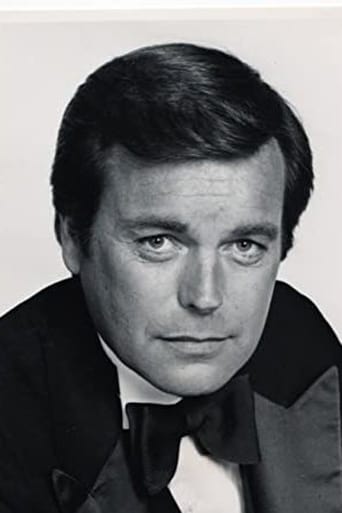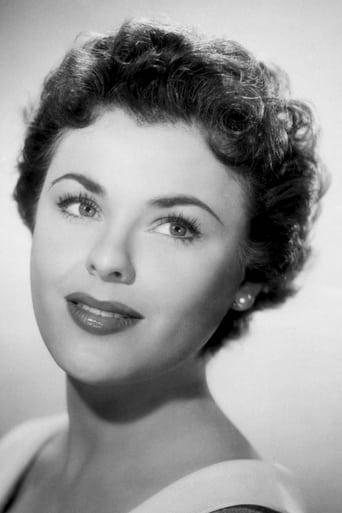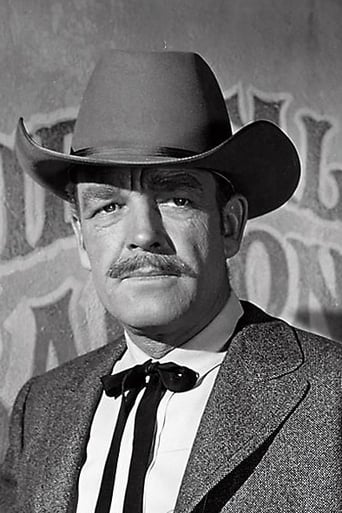bsmith5552
"The Silver Whip" was I'm sure, a vehicle for up and coming star Robert Wagner whom 20th Century Fox was grooming for stardom. It co-starred him with two of the studio's top leading men of the day, Dale Robertson and Rory Calhoun.Wagner plays Jess Harker a disgruntled but ambitious stagecoach driver who is not getting his due. He is driving a local run with a mule team. He longs to drive the main line coach. When he threatens to leave for greener pastures, his girl Kathy Riley (Kathleen Crowley) and two-gun shotgun guard Race Crim (Robertson) arrange for him to be transferred to the main line in spite of dispatcher Luke Bowen's (James Millican) apprehensions.The stage is to carry a large gold shipment which outlaw Slater (John Kellogg) overhears in the saloon. He races to the relay station to meet up with his gang and rob the coach. When the stage arrives at the relay station, Race suspects something and tells Jess to move the stage out of harm's way. Jess disobeys and remains. Following a gunfight with the gang, they make off with the loot.When Race's girlfriend Waco (Lola Albright) and Uncle Ben (Bert Mustin) are killed, Rice is filled with rage. He takes off after the outlaws while Jess joins up with Sheriff Tom Davisson's (Calhoun) posse. They catch up with one of the outlaws (Ian MacDonald) and take him prisoner in spite of Race's desire to hang him on the spot. All of the other bandits were killed by Race except for Slater.Later, when Slater is captured, the townsmen form a lynch mob and convince Race to join them. Jess, meanwhile has hired on as Davisson's deputy and is left in charge of the prisoners. The mob storms the jail and..............................................................................The film was not one of the studio's big budget films of the year. It was filmed in glorious black & white just as the wide screen CinemaScope process was coming in. Robertson is quite good as he goes from confident law abiding to hate filled vigilante. Calhoun has little to do and Wagner does OK as the young Jess. Watch for sagebrush veterans George Chesboro, John Doucette and Edmund Cobb as members of the lynch mob.
weezeralfalfa
Another reviewer has provided an exhaustive summary of the screenplay, so I won't repeat that, as such, here. This is basically a coming of age story for a young stagecoach driver, Jess(Robert Wagner), who wants to upgrade from driving a small local stage pulled by 2 mules to driving a main line standard coach, pulled by 6 horses. He's also, for a short period, given the important job of deputy sheriff, in which he helps chase down some gold thieves, and is the only thing between them in a jail cell and a lynching mob. The latter episode is the psychological climax of the film, if not the action highlight. with the jail door being chopped down. Jess has to face his friend and mentor Race(Dale Robertson), who is at the forefront of the mob. He knows his first duty is to defend the two inmates from harm, however he may hate them. He threatens to shoot Race, but Race doesn't believe he will. He does, and Race falls to the floor, badly wounded in the abdomen. Fortunately, later he recovers. Meanwhile, the sheriff and a couple of aids arrive in back of the mob and help convince them to disperse. Thus, Jess accomplished his part of the defense by luck or design, stopping Race and the mob with his gun, but not killing Race. Anthony Perkins faced a similar situation, as a young sheriff under the tutelage of Henry Fonda, in "The Tin Star".Jess wasn't so lucky in his first experience as driver of the main stage. A large quantity of gold was being carried. The station master should have stuck to his original decision not to allow Jess to drive on this important run. Race and his Uncle Ben said they thought he was ready for the main line. Unfortunately, a badman by the name of Slade overheard Race mention the gold shipment in the saloon, and rode off to gather a gang to steal it. They took over a way station, and began shooting when the stage arrived. Race, Jess's shotgun guard, tells him to get the stage out of there without him. But, Jess ignored this standard procedure under such circumstances. As a result, he was soon badly wounded, the stage horses ran off without him and 2 passengers inside were killed by stray bullets, including Race's girlfriend. As a result , Jess lost his right to drive a stagecoach. That's when sheriff Tom(Roy Calhoun) offered to try out Jess as a deputy....This is also a coming of age story for Race, in that he had to learn the hard way that his brand of vigilante justice was not acceptable by the law. Incidentally, the title comes from a whip with silver handle given to Jess by Race on his first run with a 6 horses stage. The whips used for the 6 horses team were different from those used on the 2 mule teams.I consider this film to be as interesting and significant as the highly regarded "The Tin Star", which also deals with a coming of age story regarding a young sheriff. I find both of these more interesting and significant than the more highly regarded "High Noon", which deals with the same subject in an older man, In fact I rate them higher than "The Searchers". Here is a good place to discuss a little philosophy relating to vigilantism. From a moral(not legal) viewpoint, is vigilantism ever justified? I would say it can sometimes be justified if the justice system is corrupt, or otherwise ineffective, and you are positive you have identified the guilty and that they have perpetrated a crime of sufficient magnitude. Distinguishing between self-defense, vigilantism and dueling can be difficult. In the case of the firefight at the way station, clearly we have a case of self defense on the part of the stage people. When Race is chasing Slade and shoots him, Race is a vigilante and Slade is acting in self-defense, if he shoots back. But if Race were deputized or licensed as a bounty hunter, he is not a vigilante, technically, in trying to apprehend Slade, as long as his job description allows him to kill the fugitive, if necessary to apprehend him. If a reward is offered for the capture or slaying of a fugitive, then everyone can legally be the equivalent of a bounty hunter, and need not fear being labeled a vigilante, unless it is specified that the fugitive must be captured alive. Race wanted to finish Slade off after disabling him with a shot, but sheriff Tom made Race put down his rifle. A disabled, not dead, Slade is what Tom wanted....In the formal duels of the early 19th century for example, usually one challenged the other for a perceived deed or slight. They can be considered a fight between a vigilante(challenger) and one acting in self defense(the challenged). If there is a mutual agreement on a formal duel over a dispute, for example, both may be considered vigilantes.
Michael Morrison
Three of the stars became major television stars as well. And Rory Calhoun, Dale Robertson, and Robert Wagner made an excellent trio.Accompanied by two of the loveliest ladies, Lola Albright and Kathleen Crowley, as well as by some un-credited high-caliber performers such as the great John Doucette, George Cheesbro, and Edmund Cobb, they give us a tense western drama.Anger and revenge for cold-blooded killing always make for drama, and usually the audience, the viewers know which side to take. Here, though, there becomes a question of the right and wrong of lynch law. Who will defend the "official" law, and who will support the old "eye for an eye" law?The denouement is not what we expect.Until then, we are torn, because all the protagonists are good people and it is hard to decide for whom to root.Un-billed is Chuck Connors, but billed is the superb James Millican, as is J.M. Kerrigan in an undemanding but literate and important role."The Silver Whip" is available at YouTube and I highly recommend it.
alexandre michel liberman (tmwest)
This is a film which is ignored, you do not see it mentioned in books written about westerns. Nonetheless it is very good, it also has three actors that became quite famous: Robert Wagner, Rory Calhoun and Dale Robertson. Wagner is really the central character, a young man who is looking for a chance to prove himself. Robertson and Calhoun are the older men that will give him opportunities to do so. He will be confronted with terrible situations where his mistakes will cost the life of other people, but also if he is right it could be at the expense of somebody's life. There is no way for him of coming out without feeling guilt, but at least there is comfort when you know you took the right decision. Wagner is quite a good actor, the only criticism I have about him is that his hair looks as it took hours to comb, but that was the fashion in the fifties. Robertson, very different from what we are used to, gives a very good performance.
